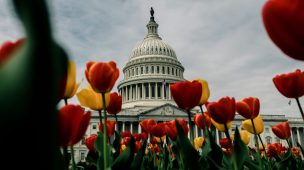9 March: What’s going on in ESG and insurance?
9 March, 2023
Welcome to our ESG roundup, keeping you up to date on the insurance industry’s most significant ESG-related news. The week’s topic: Backlash to ESG
Read our summary and analysis below.
Analysis
Backlash to ESG
There has been recent pushback on the concept of ESG as a driver of change.
Critics are becoming increasingly vocal, for example claiming ESG investments allocate money based on “woke” political agendas, such as a drive against climate change, rather than on earning the best returns for savers. Elon Musk also recently called ESG a scam ‘weaponized by phony social justice warriors’ shortly after Tesla got kicked off the S&P 500 ESG index.
Action taken in Texas demonstrates how far this pushback can go. Republican lawmakers in the Texas House and Senate have introduced legislation to ban insurers from considering ESG scores as they establish insurance rates. If enacted, the law may have an impact on some of big insurers in the state.
Some (re)insurers fear that such draconian restrictions on considering any ESG score within their underwriting process, could hamper their ability to make sound decisions about policies given the existence of some evidence showing a correlation between some ESG metrics and underlying risk.
Furthermore, Wall Street firms have warned that a backlash against sustainable action is now a material risk. The likes of BlackRock, Blackstone and T Rowe Price added language to annual reports that pressures such as “divergent views” on ESG investing could hurt financial performance.
We are therefore seeing a strong divergence between the anti-ESG attitudes in certain states in the USA, and a very strong pro-sustainability and pro-ESG push in parts of Europe, where the direction of travel is one of embedding ESG considerations into underwriting.
For (re)insurers operating across both jurisdictions, it makes a unified approach increasingly difficult as they attempt to navigate the nuances of different regulation, laws and cultures surrounding ESG.
A few months ago, many were considering a superficial re-naming i.e. replacing ESG initiatives with sustainability, CSR and business-as-usual activities. Such an approach does not look like it will resolve the more fundamental challenges being faced.
While ESG remains a “hot topic”, and many sustainability initiatives will continue to be necessary to understand clients better and to be able to respond to investor and other stakeholder demands, the approach for some – especially with a large presence in certain states in USA – will not be straightforward.
Summary
Backlash to ESG
Texas Republicans ban ESG insurance (Time)
After banning 10 ESG-friendly financial firms from doing business with Texas last summer, lawmakers in Austin have set their sights on a bigger target: the insurance industry. Republicans in the Texas House and Senate have introduced legislation to ban insurers from considering ESG scores as they establish insurance rates.
This would be a big blow for the industry. Insurance companies fear that restrictions on ESG considerations could hamper their ability to makes sound decisions about policies they offer their customers given that they can represent real financial risks. Calculating risk is central to insurance companies as risk determines how much customers pay and whether they’re offered a policy at all. Climate-linked concerns are part of this.
As of December, at least 18 states had passed or introduced anti-ESG laws as ESG investing has grown dramatically over the last decade. The insurance legislation would go further than previous sanctions on financial firms, effectively restricting insurance companies that use ESG metrics from doing any business in the state. Texas may only be the start with ESG experts saying that behind closed doors fears have grown that Republicans may target the insurance industry in other states too.
Wall Street titans confront ESG backlash as new financial risk (Financial Times)
Wall Street’s largest asset managers, private equity firms and brokers have warned that a backlash against sustainable investing is now a material risk. The likes of BlackRock, Blackstone and T Rowe Price added language to annual reports that pressures such as “divergent views” on ESG investing could hurt financial performance.
It comes amidst a campaign against “woke capitalism” that has drawn support from high-profile Republicans such as Florida governor Ron DeSantis and Senate minority leader Mitch McConnell. Anti-ESG sentiment has “gained momentum” across the US, the private equity firms Carlyle, TPG and Ares all said in annual reports. In Texas, BlackRock and its rival State Street were berated for their ESG investing policies at a December legislative hearing.
The fight is now moving to the federal level with Congressional Republicans seeking to block the Biden administration from allowing retirement plans to consider ESG standards.
What is ESG investing and why do some hate it so much? (The Independent)
Critics say ESG investments allocate money based on “woke” political agendas, such as a drive against climate change, rather than on earning the best returns for savers. The ESG industry, on the other hand, says it helps to highlight companies that may be riskier than traditional investing guidelines that don’t incorporate such metrics suggest. Furthermore, it could help investors find more profitable opportunities.
ESG accounted for $1 of every $8 in all US assets under professional management, or $8.4 trillion which is enough to buy Tesla, one of the most valuable US stocks, more than 11 times. Sharp drops for all kinds of investment prices, along with increased political backlash, led to investors pulling $6.2 billion out of sustainable funds than they put in.
ESG investors are pushing for more engagement with companies, discussing their concerns about the environment, social issues, and governance. They want more details about corporate carbon emissions, measurements about their impacts on human rights and audits for racial equity. It’s an evolution from the industry’s early days of no-tobacco or gun-maker investment.
Elon Musk called ESG a scam ‘weaponized by phony social justice warriors’ shortly after Tesla got kicked off the S&P 500 ESG index. Controversy goes further, though, with regulators warning that a number of firms are claiming to be ESG-driven but owning companies with low ESG scores. The nuances can make for confusion among investors trying to find the right ESG fund for them.
Regulation and greenwashing concerns
Australia regulator kicks off greenwashing crackdown with suit against Mercer (ESG Today)
The Australian Securities & Investments Commission (ASIC) announced launch of first court action against greenwashing, initiating proceedings against Marsh McLennan company Mercer Superannuation for allegedly making false claims about some of its sustainable investment options.
The regulator is alleging that Mercer made false and misleading statements and engaged in conduct that could mislead the public. This was due to Mercer’s claims on its website about ‘Sustainable Plus’ investment options including exclusions applied to those involved in carbon intensive fossil fuels like thermal coal as well as alcohol and gambling companies. However, the regulator notes that investors who chose such options did in fact have investments in coal companies such as BHP Group and Glencore as well as alcohol and gambling companies.
ASIC said in addition to seeking declarations and monetary penalties from court, it is also asking for injunctions preventing Mercer from continuing to make any of the alleged misleading statements on its website, and a requirement for Mercer to publicise any contraventions found by the court.
New Canadian federal rules call for financial institutions to bolster climate disclosure, risk management (Globe and Mail)
Canada’s big banks and insurance companies should combine efforts to minimize climate-related risks in their overall business strategies, and they should tie top executives’ pay to meeting those objectives, the industry’s federal regulator says in a new set of climate-risk guidelines released on Tuesday.
But in the new guidelines, the Office of the Superintendent of Financial Institutions, or OSFI, stops short of prescribing specific increases in capital buffers to deal with a range of physical and policy risks stemming from climate change, including potential fallout from shifts in the economy related to meeting national commitments to decarbonization.
The guidelines say banks and insurers should be able to show their business strategies and finances will be resilient as the world works to limit temperature increase to 1.5 degrees above preindustrial levels, the most ambitious target set out in the Paris Agreement.
The guidelines say banks and insurers should be able to show their business strategies and finances will be resilient as the world works to limit temperature increase to 1.5 degrees above preindustrial levels, the most ambitious target set out in the Paris Agreement.
Biodiversity risks a growing concern for businesses (Business Insurance)
Businesses and insurers are also starting to pay closer attention to other ESG-related issues such as biodiversity and nature-related risks as regulatory frameworks evolve.
Development of insurance coverages that can help restore natural ecosystems and protect the businesses and communities that depend on them is in an early stage but likely to grow. In September the Taskforce on Nature-related Financial Disclosures is expected to release final recommendations for its risk management and disclosure framework that companies can use to report nature-related risks. This could lead to businesses being required to make biodiversity risk disclosures.
Innovative activities
Joining forces to build financial resilience in least developed countries (UNDP)
The United Nations Development Programme (UNDP) Insurance and Risk Finance Facility (IRFF) has launched a dedicated programme which seeks to build capacity in least developed countries (LDCs) to adopt insurance and risk financing solutions, enhance the regulatory and legislative environment, integrate risk transfer into government decision-making, and drive engagement between government and the insurance industry.
The initiative is currently active in three countries – Comoros, Senegal and Uganda – and will soon expand into two more. The programme of work in each country is tailored and builds on a diagnostic of the current environment for insurance and risk finance in each LDC.
Hiscox reveals ESG syndicate launch plan (Reinsurance News)
Hiscox has announced the creation of a new sub-syndicate nested within Syndicate 33 that will focus on ESG-positive risks. The syndicate will lean on its existing stand capacity, writing incremental risks.
Hiscox states that it will leverage existing relationships complemented by developing deep in-house expertise in renewables and power, including things like electric vehicles and infrastructure.
To achieve scale, Hiscox expects its new ESG syndicate to partner with external capital.
About the authors
Eleanor Ewen is a Senior Consultant at Oxbow Partners. Her work has included undertaking a culture review for a Bermudian reinsurer and building a ‘break-out strategy’ opportunity for a UK retail insurer. Alongside this, she helped draft a ground-breaking report on ESG which launched in Bermuda.


